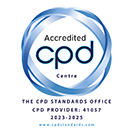22 September 2016
Are Neonicotinoids Killing Bees?
Organised by:
SCI's Agrisciences Group
SCI, London, UK
Registration Closed
This event is no longer available for registration.
Synopsis
In 2013, the European Union on the advice of the European Food Safety Authority restricted the use of certain neonicotinoid insecticides amid claims of adverse effects on pollinators and other wildlife. More recently, the UK government has called for a refocus to deliver a precautionary, hazard-based approach to pesticide use to help protect bees. This conference will hear from experts from academia, the crop protection industry, government and regulatory agencies, in addition to beekeepers and farmers, to explore the data behind the ban, the impact of alternative control methods, and what the options are for the future, through promotion of sound scientific evidence to aid decision-making.Attendees
This event is designed to appeal to academic and industrial scientists involved in all aspects of crop research and production, and ecosystem services including pollination, and other stakeholders interested in the latest developments.
Programme
Day 1 - 22 September 2016
- 10:00
- Registration and refreshments
- 10:30
- Chair (morning session) Tom Bradshaw, National Farmers Union, UK
- 10:40
- Elucidating risk of neonicotinoid exposure to bees and understanding impacts on genes through to populations Richard Gill, Imperial College, UK
- 11:05
- Balancing the debate on neonicotinoids in agriculture: weighing the evidence for impacts on bees and possible consequences of their loss Keith Walters, Imperial College London, UK
- 11:30
- The adverse impact of the neonicotinoid seed treatment ban on crop protection in oilseed rape in the UK Alan Dewar, Dewar Crop Protection, UK
- 11:55
- Three years of banning neonicotinoid insecticides based on sub-lethal effects: can we expect effects? Tjeerd Blacquiére, Wageningen, The Netherlands
- 12:20
- Effects of neonicotinoids on the behaviour and development of the model worm C. elegans. Monika Kudelska, University of Southampton
- 12:25
- Lunch and posters
- 13:30
- Chair (afternoon session) Lin Field, Rothamsted Research, UK
- 13:40
- The risk of pesticide dust emission from treated seeds during seed drilling Dieter Foqué, ILVO, Belgium
- 14:05
- A Beekeepers perspective on the neonicotinoid ban Norman Carreck, University of Sussex, UK
- 14:30
- Refreshments
- 15:00
- Regulatory assessment of plant protection products (pesticides): context and objectives Anne Alix, Dow AgroSciences, UK
- 15:25
- Bee Safety of Neonicotinoids: Evidence from studies conducted under realistic field conditions Christian Maus, Bayer CropScience, Germany
- 15:50
- A review of the evidence base on neonicotinoids and pollinators from the point of view of the crop protection industry Peter Campbell, Syngenta, UK
- 16:25
- Panel discussion
- 17:00
- Closing remarks and poster prizes
Accessibility Grants
SCI accessibility grants are available to support SCI members with disabilities, long term health conditions, those who require a carer, and members who are nursing parents to attend SCI events. Download an application form to apply for a grant.
Venue and Contact
SCI
14/15 Belgrave Square
London
SW1X 8PS
Conference Team
Tel: +44 (0)20 7598 1561
Email: conferences@soci.org
Fees
Standard fees after Friday 29 July
£120 . . . . . . . . . . . . . SCI Members and Academics£45 . . . . . . . . . . . . . . SCI Student Members
£150 . . . . . . . . . . . . . Non-Members
Become an SCI Member and save on this and future events
See Membership OptionsSign up as an Event Member to join this event. SCI Full or Student Members receive discounts on event registrations
Booking Process/Deadlines
For booking terms and conditions click here.
CPD Info
All delegates attending this meeting are able to claim CPD points.
Additional Info
Organising Committee
Len Copping, SCI/LGC Consultants
Robin Blake, SCI/CSI Europe Ltd





